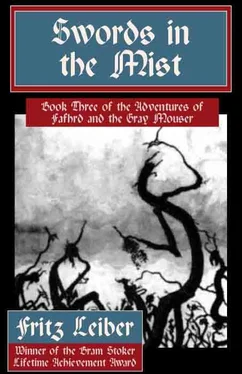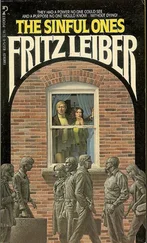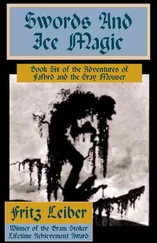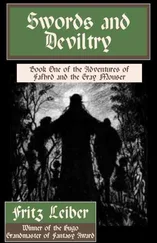Ahura continued, “For a long time nothing happened, except occasionally slaves hurried in and out with full and empty dishes, and there was some laughter, and I heard Phryne's flute. Then suddenly the laughter grew louder and changed to singing, and there was the sound of couches pushed back and the patter of footsteps, and there swept into the court a Dionysiac rout.
“Phryne, naked, piped the way. My mother followed, laughing, her arms linked with those of two dancing young men, but clutching to her bosom a large silver wine-bowl. The wine sloshed over and stained purple her white silk chiton around her breasts, but she only laughed and reeled more wildly. After those came many others, men and women, young and old, all singing and dancing. One limber young man skipped high, clapping his heels, and one fat old grinning fellow panted and had to be pulled by girls, but they kept it up three times around the court before they threw themselves down on the couches and cushions. Then while they chattered and laughed and kissed and embraced and played pranks and watched a naked girl prettier than Phryne dance, my mother offered the bowl around for them to dip their wine cups.
“I was astounded — and entranced. I had been almost dead with fear, expecting I don't know what cruelties and horrors. Instead, what I saw was wholly lovely and natural. The revelation burst on me, ‘So this is the wonderful and important thing that people do.’ My mother no longer frightened me. Though she still wore her new face, there was no longer any hardness about her, inside or out, only joy and beauty. The young men were so witty and gay I had to put my fist in my mouth to keep from screaming with laughter. Even Phryne, squatting on her heels like a skinny boy as she piped, seemed for once unmalicious and likable. I couldn't wait to tell Anra.
“There was only one disturbing note, and that was so slight I hardly noticed it. Two of the men who took the lead in the joking, a young red-haired fellow and an older chap with a face like a lean satyr, seemed to have something up their sleeves. I saw them whisper to some of the others. And once the younger grinned at Mother and shouted, ‘I know something about you from way back!’ And once the older called at her mockingly, ‘I know something about your great-grandmother, you old Persian you!’ Each time Mother laughed and waved her hand derisively, but I could see that she was bothered underneath. And each time some of the others paused momentarily, as if they had an inkling of something, but didn't want to let on. Eventually the two men drifted out, and from then on there was nothing to mar the fun.
“The dancing became wilder and staggering, the laughter louder, more wine was spilled than drank. Then Phryne threw away her flute and ran and landed in the fat man's lap with a jounce that almost knocked the wind out of him. Four or five of the others tumbled down.
“Just at that moment there came a crashing and a loud rending of wood, as if a door were being broken in. Instantly everyone was as still as death. Someone jerked around, and a lamp snuffed out, throwing half the court into shadow.
“Then loud, shaking footsteps, like two paving blocks walking, sounded through the house, coming nearer and nearer.
“Everyone was frozen, staring at the doorway. Phryne still had her arm around the fat man's neck. But it was in Mother's face that the truly unbearable terror showed. She had retreated to the remaining lamp and dropped to her knees there. The whites showed around her eyes. She began to utter short, rapid screams, like a trapped dog.
“Then through the doorway clomped a great ragged-edged, square-limbed, naked stone man fully seven feet high. His face was just expressionless black gashes in a flat surface, and before him was thrust a mortary stone member. I couldn't bear to look at him, but I had to. He tramped echoingly across the room to Mother, jerked her up, still screaming, by the hair, and with the other hand ripped down her wine-stained chiton. I fainted.
“But it must have ended about there, for when I came to, sick with terror, it was to hear everyone laughing uproariously. Several of them were bending over Mother, at once reassuring and mocking her, the two men who had gone out among them, and to one side was a jumbled heap of cloth and thin boards, both crusted with mortar. From what they said I understood that the red-haired one had worn the horrible disguise, while satyr-face had made the footsteps by rhythmically clomping on the floor with a brick, and had simulated the breaking door by jumping on a propped-up board.
“ ‘Now tell us your great-grandmother wasn't married to a stupid old stone demon back in Persia!’ he jeered pleasantly, wagging his finger.
“Then came something that tortured me like a rusty dagger and terrified me, in a very quiet way, as much as the image. Although she was white as milk and barely able to totter, Mother did her best to pretend that the loathsome trick they'd played on her was just a clever joke. I knew why. She was horribly afraid of losing their friendship and would have done anything rather than be left alone.
“Her pretense worked. Although some of them left, the rest yielded to her laughing entreaties. They drank until they sprawled out snoring. I waited until almost dawn, then summoned all my courage, made my stiff muscles pull me onto the tiles, cold and slippery with dew, and with what seemed the last of my strength, dragged myself back to our room.
“But not to sleep. Anra was awake and avid to hear what had happened. I begged him not to make me, but he insisted. I had to tell him everything. The pictures of what I'd seen kept bobbing up in my wretchedly tired mind so vividly that it seemed to be happening all over again. He asked all sorts of questions, wouldn't let me miss a single detail. I had to relive that first thrilling revelation of joy, tainted now by the knowledge that the people were mostly sly and cruel.
“When I got to the part about the stone image, Anra became terribly excited. But when I told him about it all being a nasty joke, he seemed disappointed. He became angry, as if he suspected me of lying.
“Finally he let me sleep.
“The next night I went back to my cubbyhole under the tiles."
Again Fafhrd stopped his horse. The mist masking the mountaintop had suddenly begun to glow, as if a green moon were rising, or as if it were a volcano spouting green flames. The hue tinged their upturned faces. It lured like some vast cloudy jewel. Fafhrd and the Mouser exchanged a glance of fatalistic wonder. Then all three proceeded up the narrowing ridge.
Ahura continued, “I'd sworn by all the gods I'd never do it. I'd told myself I'd rather die. But… Anra made me.
“Daytimes I wandered around like a stupefied little ghost slave. Old Berenice was puzzled and suspicious, and once or twice I thought Phryne grimaced knowingly. Finally even Mother noticed and questioned me and had a physician in.
“I think I would have gotten really sick and died, or gone mad, except that then, in desperation at last, I started to go outside, and a whole new world opened to me."
As she spoke on, her voice rising in hushed excitement at the memory of it, there was painted in the minds of Fafhrd and the Mouser a picture of the magic city that Tyre must have seemed to the child — the waterfront, the riches, the bustle of trade, the hum of gossip and laughter, the ships and strangers from foreign lands.
“Those people I had watched from the roof — I could touch almost anywhere. Every person I met seemed a wonderful mystery, something to be smiled and chattered at. I dressed as a slave-child, and all sorts of folk got to know me and expect my coming — other slaves, tavern wenches and sellers of sweetmeats, street merchants and scribes, errand boys and boatmen, seamstresses and cooks. I made myself useful, ran errands myself, listened delightedly to their endless talk, passed on gossip I'd heard, gave away bits of food I'd stolen at home, became a favorite. It seemed to me I could never get enough of Tyre. I scampered from morning to night. It was generally twilight before I climbed back over the garden wall.
Читать дальше









